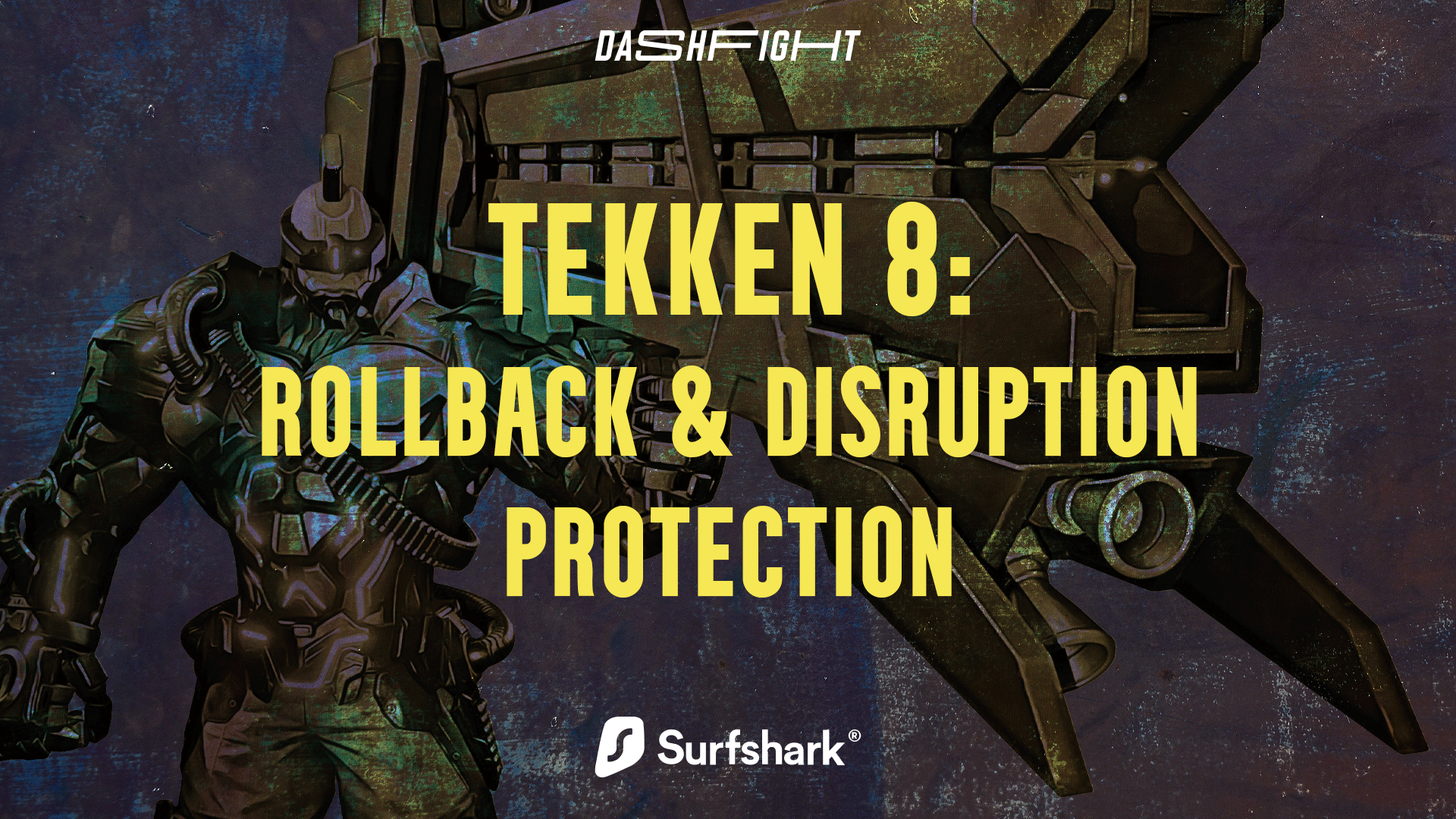Protect yourself against the DDoS attacks with a premium VPN
The world of fighting games has evolved dramatically over the years, with more and more mainstream and niche titles alike getting better and better netcode. One of the most popular series in this genre is Tekken, developed by Bandai Namco Entertainment. As we eagerly anticipate Tekken 8, it is crucial to address two significant concerns: rollback netcode and DDoS attacks.
Netcode is the underlying software responsible for facilitating online play in video games. In fighting games like Tekken, precise and real-time responsiveness is critical for smooth gameplay and ensuring that players' inputs translate accurately on-screen. Poor netcode can lead to input delays, inconsistent frame rates, and lag, which significantly affect the player's ability to execute combos and react to opponents' moves effectively.
With Tekken 8, we anticipate improvements in netcode compared to the previous entry to create a seamless online experience. Robust netcode can reduce input delay, maintain a stable frame rate, and prioritize stable connections to minimize lag. Rollback netcode, which has quickly become a golden standard for any self-respecting fighting game title, is a networking technique commonly used in online video games to minimize input delay and provide a smoother online gaming experience. Instead of waiting for both players' inputs to be received and synchronized, the rollback netcode predicts the outcome of player inputs and continues the game state locally. If the prediction is incorrect, the game "rolls back" to the correct state, re-simulates the actions, and then applies the correct outcome. This process happens seamlessly in the background, reducing the perception of lag and creating a more responsive and enjoyable online gameplay environment.
Tekken 8 Official Trailer | The Game Awards 2022 Rollback netcode, while beneficial for improving online gaming experiences, is not designed to protect against DDoS attacks. Rollback netcode focuses on mitigating lag and providing smoother gameplay by predicting and correcting actions, but it does not address the issue of server overload caused by malicious attacks.
A DDoS attack usually floods a game server with a massive volume of traffic, overwhelming its capacity and causing severe disruptions or outages. To defend against such attacks, game developers and server administrators usually implement additional security measures, such as traffic filtering, rate limiting, and load balancing, to safeguard the server infrastructure. But a fighting game like Tekken has no servers, and players connect to each other directly. Looking up a player’s IP address isn’t very difficult, and malicious players can use this as an opportunity to launch a DDoS attack on their opponents. Exactly this happened to a prominent player, community figure, and content creator Miles "KawaiiFaceMiles" Mackenzie, in Tekken 7.
As we saw in this example, in Tekken, a DDoS attack can have devastating consequences. Not only does it affect the targeted player, but it also disrupts the overall online ecosystem, leading to frustration and loss of interest among players.
Surfshark, a popular VPN service, offers a valuable solution to counter DDoS attacks in Tekken and other online games. A VPN works by routing a player's internet traffic through a secure server located in a different location, masking their true IP address. This process not only provides anonymity but also offers protection against DDoS attacks.
When a player connects to a Tekken game using Surfshark, their IP address remains hidden from potential attackers. Instead, the game server interacts with Surfshark's IP address, acting as a protective barrier. In the event of a DDoS attack, the malicious traffic is directed to Surfshark's server rather than the player's actual network, preventing any disruption to the player's connection and gameplay. Additionally, Surfshark recently launched its Dedicated IP feature that gives you an IP address that is exclusively yours, while Static IPs or Dynamic IPs are shared between other users. It’s recommended to use this feature to get even more stability and better performance.
Furthermore, Surfshark's advanced security features, such as AES-256 encryption and a strict no-logs policy, enhance the player's overall online safety. This level of protection ensures that Tekken players can focus solely on perfecting their skills and enjoying the competitive aspect of the game without the constant worry of DDoS attacks.
Surfshark offers you a two-year deal at 82% off with two additional months by following this link. This is the most cost-efficient deal for a premium-quality VPN service.
Tekken 8 holds great promise for the fighting game community, offering heated new gameplay and exciting new features. We recently participated in the Closed Network Test, you can read about our experience here. It wasn’t perfect, but they still have time to work on it and give us a fighting game that’s both responsive and secure. However, if the latter isn’t the case, you can always defend yourself against malicious attacks with a service like Surfshark VPN, especially with a great two-year deal at 82% off. Stay safe and play Tekken!




















